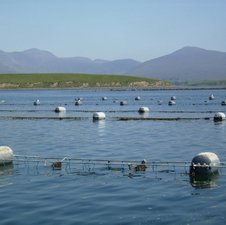Aquafeed researchers and biodiesel firm join forces to explore potential of tropical oilseeds and nuts
Candlenuts, coconut and jatropha may one day feature in aquafeed formulations if new research at the Oceanic Institute proves promising.
Thanks to funding by the United States Environmental Protection Agency (EPA) a project is underway to explore and evaluate plant species, such as coconut, kukui, jatropha and castor, currently growing in Hawai’i to determine their suitability for producing biodiesel. Along with oil extraction yields, biodiesel processing characteristics, fuel quality potential and emission profiles,the potential of the byproducts as feed ingredients for aquaculture and livestock feeds is being evaluated.
Feed costs have strongly contributed to the sharp decline in Hawaii's livestock sector and place a burden on its expanding aquaculture industry. According to Dr. Warren Dominy, Head of the Feed and Nutrition Department at Oceanic Institute, the utilization of local byproducts, such as those being studied in the project, could prove not just a vital lifeline to Hawaii's livestock farmers but help sustain those of other Pacific island communities.
Project partner, Pacific Biodiesel, Inc. is a pioneer in the biodiesel industry. Now with 10 plants in the U.S. and Japan, the company built one of the first commercially viable biodiesel plants in the U.S. and the nation's first retail biodiesel pump, on the Hawaiian island of Maui a decade ago. The company utilizes waste oil and grease as feedstock but as demand for its biodiesel outstrips availability the company is seeking to secue a further reliable supply from a renewable plant source.
Hawaii, in common with other remote Pacific Islands, is reliant on imported food, feed and fuel, making it particularly vulnerable in the event of an emergency. Pacific Biodiesel's philospohy of developing community-based biodiesel plants, with feedstock sourced and produced locally is a step toward lessening dependency on imports. Careful selection of the feedstock can also help island livestock farmers stay in business and support food security.
On Thursday, Oceanic Institute held a workshop and demonstrated extraction of oil from a selection of local nuts and oilseeds, using a newly commissioned Inst-Pro International oil press. View coverage from local TV station KHON 2.
The project, which is funded by the U.S. EPA Pacific Southwest Regional Air Division, is led by Honolulu Clean Cities with collaborators Oceanic Institute, an affiliate of Hawaii Pacific University, Pacific Biodiesel, Grace Pacific, Hawai’i Agriculture Research Center and University of Hawaii at Hilo.











